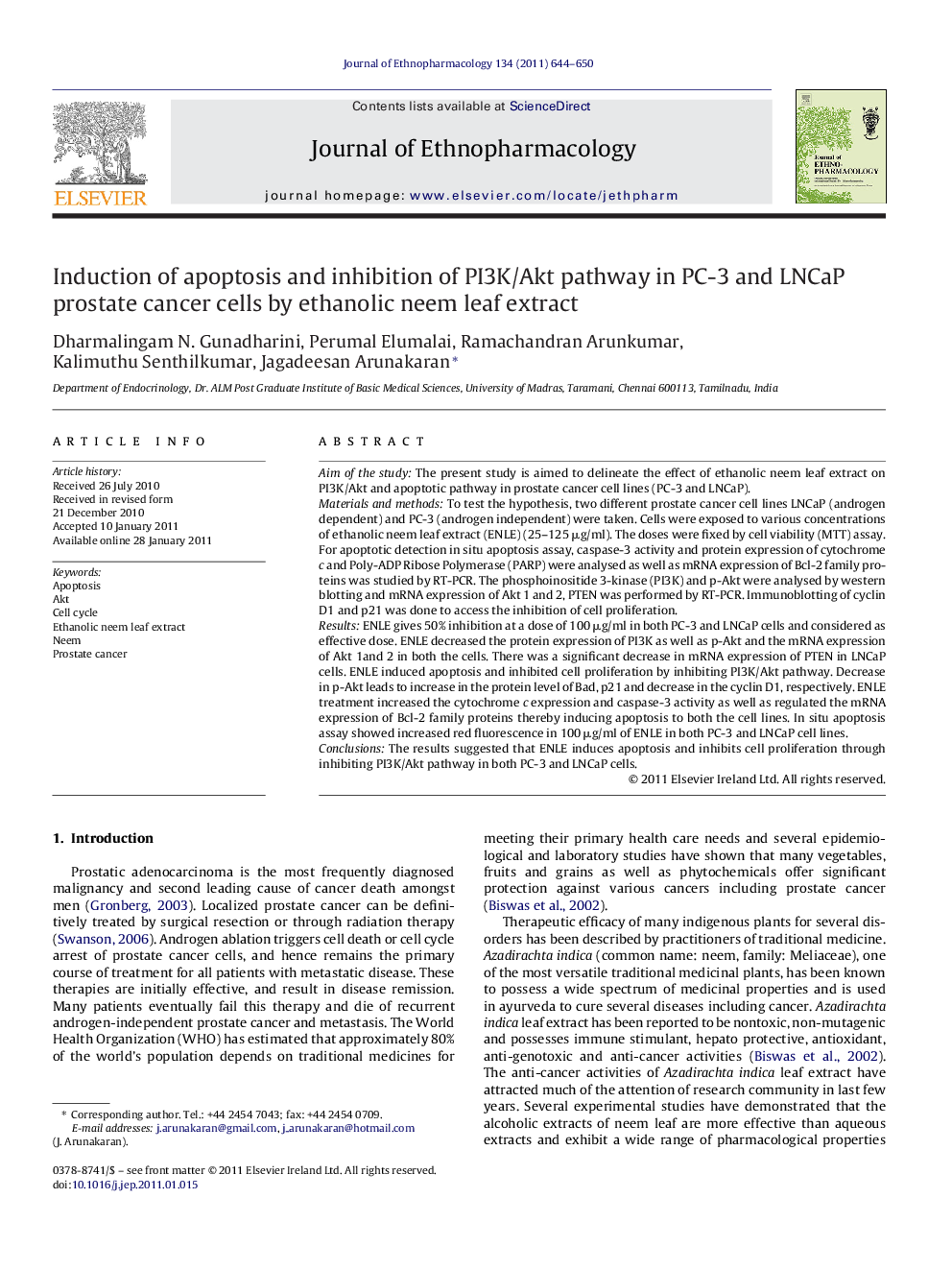| Article ID | Journal | Published Year | Pages | File Type |
|---|---|---|---|---|
| 5840212 | Journal of Ethnopharmacology | 2011 | 7 Pages |
Abstract
Aim of the studyThe present study is aimed to delineate the effect of ethanolic neem leaf extract on PI3K/Akt and apoptotic pathway in prostate cancer cell lines (PC-3 and LNCaP).Materials and methodsTo test the hypothesis, two different prostate cancer cell lines LNCaP (androgen dependent) and PC-3 (androgen independent) were taken. Cells were exposed to various concentrations of ethanolic neem leaf extract (ENLE) (25-125 μg/ml). The doses were fixed by cell viability (MTT) assay. For apoptotic detection in situ apoptosis assay, caspase-3 activity and protein expression of cytochrome c and Poly-ADP Ribose Polymerase (PARP) were analysed as well as mRNA expression of Bcl-2 family proteins was studied by RT-PCR. The phosphoinositide 3-kinase (PI3K) and p-Akt were analysed by western blotting and mRNA expression of Akt 1 and 2, PTEN was performed by RT-PCR. Immunoblotting of cyclin D1 and p21 was done to access the inhibition of cell proliferation.ResultsENLE gives 50% inhibition at a dose of 100 μg/ml in both PC-3 and LNCaP cells and considered as effective dose. ENLE decreased the protein expression of PI3K as well as p-Akt and the mRNA expression of Akt 1and 2 in both the cells. There was a significant decrease in mRNA expression of PTEN in LNCaP cells. ENLE induced apoptosis and inhibited cell proliferation by inhibiting PI3K/Akt pathway. Decrease in p-Akt leads to increase in the protein level of Bad, p21 and decrease in the cyclin D1, respectively. ENLE treatment increased the cytochrome c expression and caspase-3 activity as well as regulated the mRNA expression of Bcl-2 family proteins thereby inducing apoptosis to both the cell lines. In situ apoptosis assay showed increased red fluorescence in 100 μg/ml of ENLE in both PC-3 and LNCaP cell lines.ConclusionsThe results suggested that ENLE induces apoptosis and inhibits cell proliferation through inhibiting PI3K/Akt pathway in both PC-3 and LNCaP cells.
Related Topics
Health Sciences
Pharmacology, Toxicology and Pharmaceutical Science
Pharmacology
Authors
Dharmalingam N. Gunadharini, Perumal Elumalai, Ramachandran Arunkumar, Kalimuthu Senthilkumar, Jagadeesan Arunakaran,
